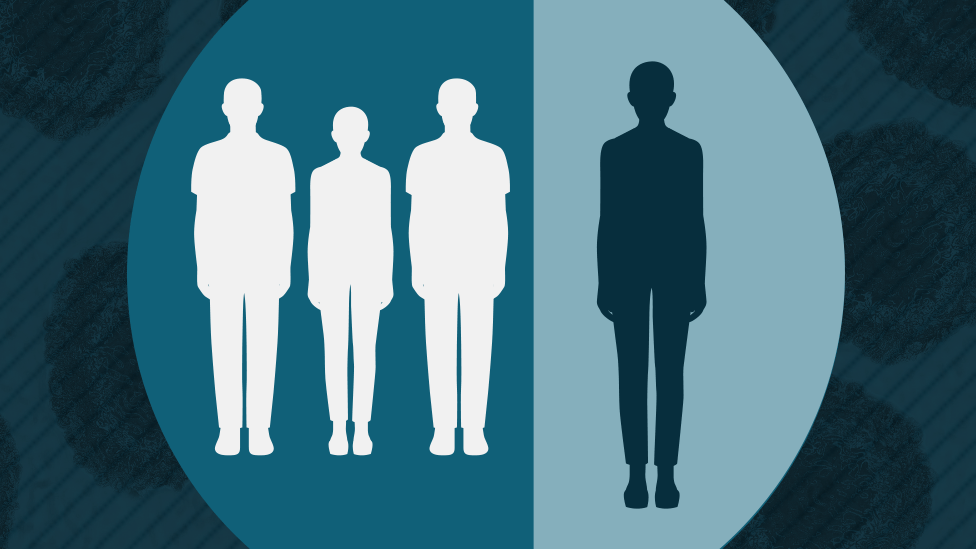Covid in Scotland: Unvaccinated people become focus of Glasgow response
- Published
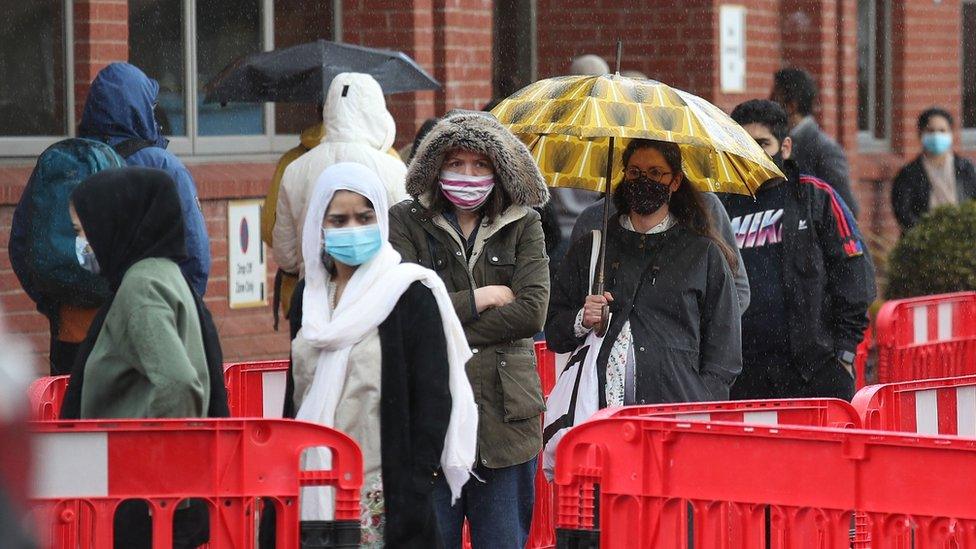
Vulnerable people who have not taken up the vaccine will be the focus of Glasgow's response to a major Covid outbreak.
Up to 15% of older people in some areas of Glasgow have not had their jabs, according to Scotland's national clinical director
Prof Jason Leitch said they were most likely to become seriously unwell as infection levels in the city rise.
Weekly case rates are now higher than 100 per 100,000 people.
The outbreak has been linked to the B1617.2 Indian variant and led to Glasgow remaining in level three restrictions on Monday while much of the rest of the country moved to level two.
Prof Leitch told BBC Radio's Good Morning Scotland that the small percentage who missed their first jab would now be targeted.
"The ones most likely to get seriously unwell are the percentage difference between 100% and those we have managed to vaccinate in the older age group," he said.
"It varies a little between 10 and 15%. In some areas it is only 5% - but 5% of a big number is a big number. So it is still a significant number of people that we really want to get vaccinated."
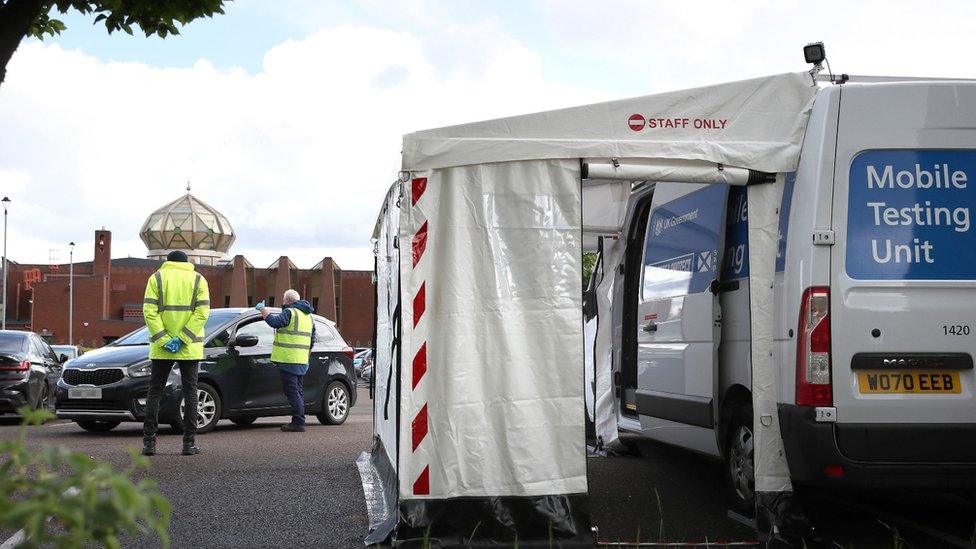
A Covid mobile testing unit has been set up in the car park of Glasgow Central Mosque
Scottish government statistics show that in the over 50 age group in the City of Glasgow, 98.1% of people had received their first dose.
However, there could be "hotspots" within the local authority where the percentage was higher.
Prof Leitch said health protection staff would also be targeting the group of people who had been given the first dose and now needed a second dose.
He said: "We don't care why. We are not going to judge you. We just want to see you. You may have missed your second dose because you thought you were already vaccinated, you don't need it.
"Please come forward. We would love to give you that full protection."
The outbreak is focused in the south of the city, with Pollokshields recording the highest rates.

How is Glasgow doing on vaccinations?
More than 780,000 people in Glasgow have received a first dose of the vaccine - but there are some significant holes in the vaccination of vulnerable populations in the city.
Glasgow has only vaccinated 89.5% of the 80-plus age group, the lowest coverage of any local authority in Scotland by some margin.
There are 12 councils who have fully met targets in the oldest age group and another four that have vaccinated 99% of the group.
It's a similar story in the 75-79 age group, where Glasgow has the second worse record, with 95.4% vaccinated with a first dose.
Only the Western Isles has lower coverage, but the population there is vastly smaller, so just a few missed vaccinations can make a big difference to the percentage coverage.

Looking at first dose vaccinations of those aged 50 or over, Glasgow is sitting in the middle of the table, but it has the second worse record for all people aged 18 or over.
It has vaccinated 56.2% of adults, whereas 22 local authorities have achieved coverage of 70% or higher.
Only Edinburgh has lower coverage than Glasgow, with 53.8% of people aged 18 or over vaccinated with a first dose.

Local health chiefs have put in place an accelerated vaccination scheme.
People in Glasgow between the ages of 18 and 39 are now being invited to get their vaccinations sooner than previously planned.
NHS Greater Glasgow and Clyde said it would be targeting the city areas of Battlefield, Gorbals and Hutchesontown, Govanhill, Aikenhead, Kingston West and Dumbreck, Maxwell Park, Mosspark, Pollokshields and Strathbungo.
The health board also said plans were being finalised to bring forward second vaccinations for over 50s.
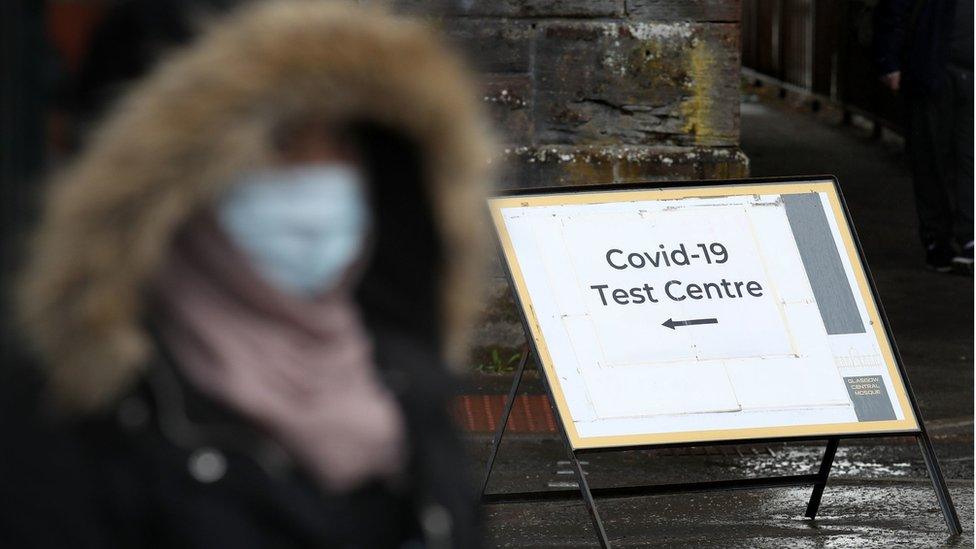
The issue of vaccine supply was also a factor, according to Prof Leitch.
Older people were given the Pfizer jab first when it became the first approved vaccine. And current advice is against giving the AstraZeneca vaccine to people aged under 30 due to a blood clot risk.
Prof Leitch said: "We absolutely want to do the over 18s as quickly as possible but need to do those with non AstraZeneca if we can. It is just a case of working it out."
He also said that offering vaccinations early to younger people in neighbouring East Renfrewshire was not a policy, yet.
The rate in East Renfrewshire is 86.9, well above the level two threshold.
Changes to levels
However, that council area, which is to the south of the city, has been moved down to level two restrictions, where indoor visits are now allowed.
Prof Leitch said that the situation was under review and that he would be advising the Scottish government this week, with the new Cabinet due to meet on Thursday and Friday to decide on any changes to levels.
He said: "I am hopeful for the vast majority of the country that we can stay on that path but it depends on two things.
"It depends on the public health response and on each of us following the guidance in each area."
He also said that it was too early to tell if mass gatherings in Glasgow at the weekend had had an impact on infection rates.


Related topics
- Published17 May 2021
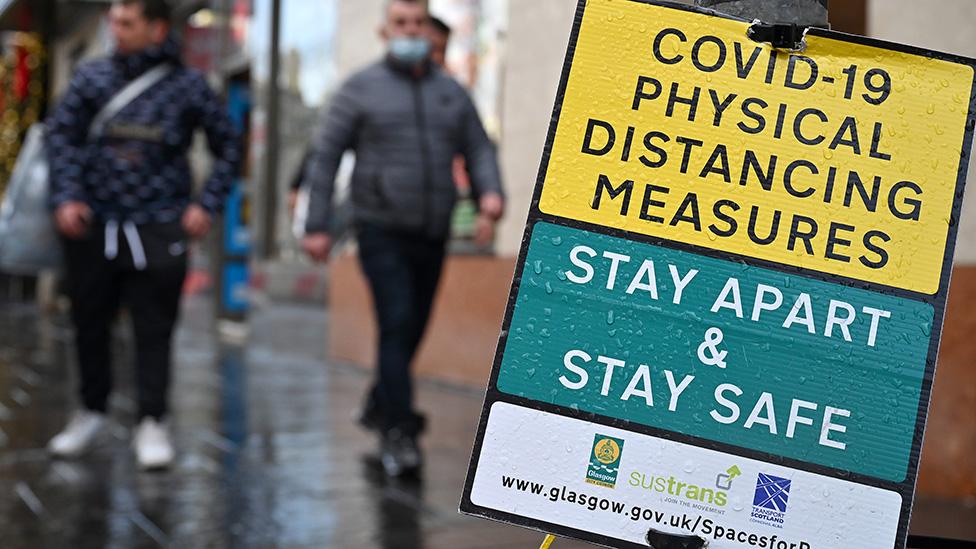
- Published13 January 2023
